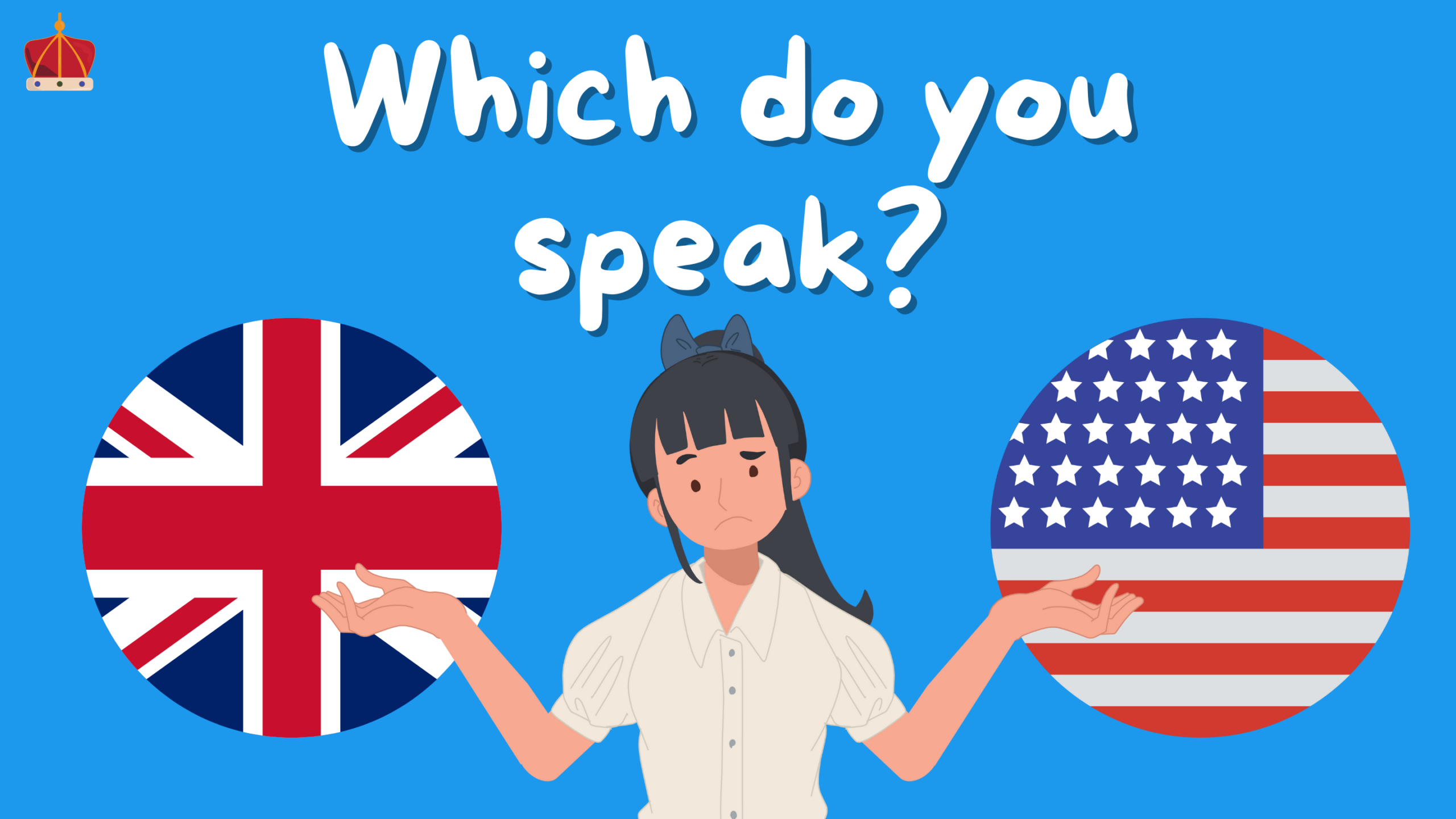
Do You Speak American or British English?
Are you learning American or British English? Or maybe you mix both! Understanding the differences between these two popular varieties of English can be both fun and helpful for language learners.
In this post, we’ll explore the key differences in pronunciation, spelling, vocabulary, and grammar. Plus, there’s a quiz to test whether you speak more American or British English. Let’s dive in!
British vs. American English: What’s the Difference?
While British English and American English are essentially the same language, there are important differences in:
- Pronunciation
- Spelling
- Vocabulary
- Grammar
These variations add richness to the English language and make learning it even more interesting.
1. Vocabulary Differences
One of the most noticeable distinctions is vocabulary. Here are some common examples:
| British English | American English |
|---|---|
| Flat | Apartment |
| Biscuit | Cookie |
| Petrol | Gas |
| Rubbish | Garbage/Trash |
| Holiday | Vacation |
| Pavement | Sidewalk |
Quick Vocabulary Quiz
- What do you call the place where pedestrians walk: pavement or sidewalk?
- When you take time off work, is it a vacation or a holiday?
- Do you throw things into the rubbish bin or the trash can?
2. Spelling Differences
British and American English have slight variations in spelling.
| British English | American English |
|---|---|
| Colour | Color |
| Favourite | Favorite |
| Centre | Center |
| Organise | Organize |
If you write “colour” with a U, you’re using British English. If not, you’re spelling it the American way.
3. Pronunciation Differences
Pronunciation can vary significantly.
- British English often has softer “R” sounds. For example, “car” might sound like “cah” in southern England.
- American English emphasizes the “R” more, saying “car” as it’s spelled.
Interestingly, accents within the UK and US vary, so you may hear exceptions!
4. Grammar Differences
Grammar can also differ, particularly in tense usage:
- Americans prefer the past simple tense: I ate lunch.
- British speakers often use the present perfect tense: I have eaten lunch.
These differences might seem tricky, but both are widely understood.
Should You Learn British or American English?
The best variety to learn depends on your goals:
- Planning to study or work in the UK? Focus on British English.
- Moving to the US or working with American companies? Focus on American English.
That said, most English speakers understand both, and mixing them is perfectly fine. The key is clear communication.
Test Yourself: Do You Speak American or British English?
Let’s find out which variety of English you speak! Answer the following:
- Do you spell “colour” with a U, or is it “color”?
- Do you walk on the sidewalk or the pavement?
- Do you go on vacation or take a holiday?
- Do you say garbage/trash or rubbish?
Share your answers in the comments below. Are you more American or British?
Mixing British and American English
Don’t worry if you mix the two varieties. Most people won’t even notice, especially when you speak clearly. Whether you use an American or British accent—or even a mix—the important thing is effective communication.
Final Thoughts
Learning English, whether it’s British or American, is an exciting journey. The differences in vocabulary, spelling, grammar, and pronunciation add character to the language. So don’t stress about choosing one over the other. Focus on improving your skills, and remember, it’s OK to mix and match!
If you enjoyed this post, let us know:
- Do you speak American or British English?
- Or do you mix them like me?
Leave a comment, share this blog, and keep learning with Easy English!

